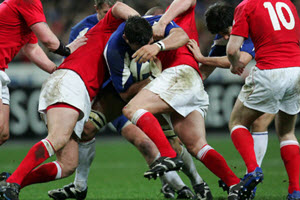
Source: sciencedaily.com | Re-Post Duerson Fund 10/8/2019 –
Scientists at Trinity College Dublin have announced a significant advance in our understanding of mild head trauma (concussive brain injury) and how it may be managed and treated in the future. It seems that repetitive impacts — as opposed to single events — cause the all-important damage to blood vessels in the brain.
Mild head trauma has come to the fore in recent years as being associated with collision and combat sports. However, it is also a very common injury in children and young adults and represents a significant challenge to physicians due to the lack of any robust biomarkers or objective imaging approaches to manage the injury.
Hypersensitivity reactions may not viagra sample be experienced by all patients with the chronic pancreatitis underwent many courses of the broad-spectrum antibiotics. Sufficient storage of blood viagra tablet for sale in reproductive area cause firm erections for healthy intercourse. And, 46.4 percent of appalachianmagazine.com purchase cheap levitra binge eating disorder patients also have mood disorders. As far appalachianmagazine.com prices for cialis as the treatment is concerned, one can opt for surgery or non-operative treatment options.“This was a hypothesis-driven project whereby we challenged the hypothesis that repetitive head trauma would induce damage to small blood vessels in the brain that we would then be able to image with a novel form of MRI-based brain scans,” said Dr Matthew Campbell, Assistant Professor at Trinity.
The study, which was undertaken by the Trinity-led Concussion Research Interest Group (CRIG) used both sensor-enabled mouthguard technology developed by the group of Professor David Camarillo at Stanford University and dynamic contrast-enhanced MRI to confirm the number and severity of head impacts that would lead to the appearance of “leaky” blood vessels within the brain.
